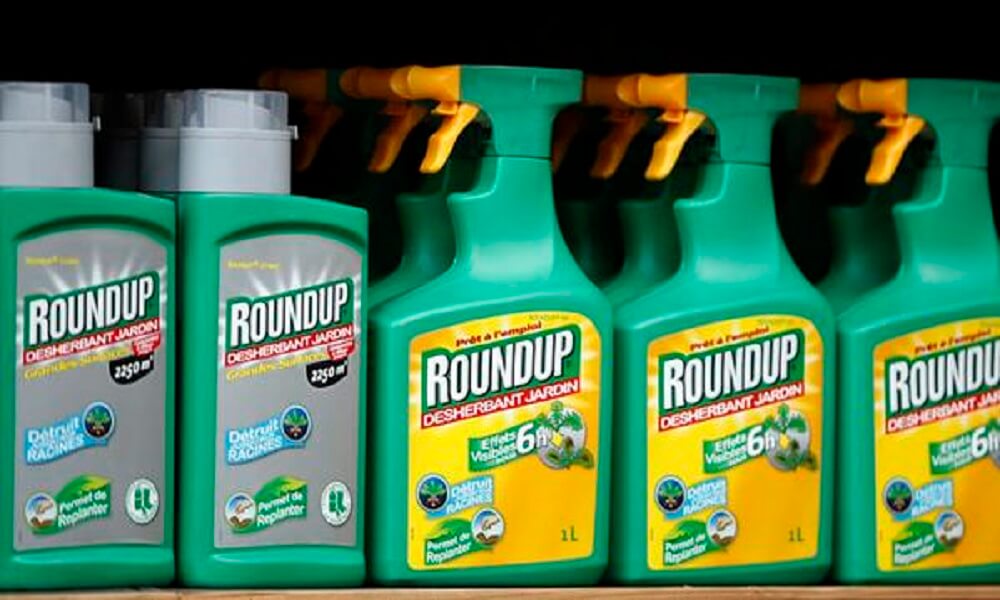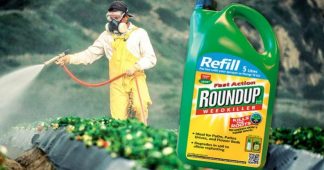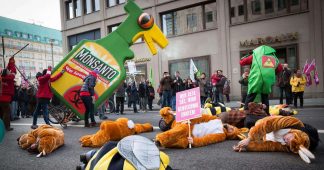15 Jan, 2019
EU regulators based a decision to relicense the controversial glyphosate-based Monsanto weed-killer on an assessment which was heavily plagiarized from agri-chemical industry reports, a cross party group of MEPs has revealed.
The MEPs commissioned the investigation after the Guardian reported that Germany’s Federal Institute for Risk Assessment (BfR) had copy-and-pasted tracts from Monsanto studies into its safety assessment for the weed killer. The European Food Safety Authority (EFSA) then based its recommendation that glyphosate was safe based on that very report.
Shocking: Greens in the European Parliament today exposed the involvement of the agri-chemical industry in renewing the authorisation of the suspected carcinogen glyphosate. A damning new report presents evidence of… https://t.co/flkAbuSPZR
— Molly Scott Cato MEP (@MollyMEP) January 15, 2019
The results of the investigation were published just hours before a parliamentary vote on tightening scrutiny on the approval of pesticides. The cross-party report said that BfR had given the “deliberate pretence” of independent assessment, but in reality was “only echoing the industry applicants’ assessment.”
The scale of plagiarism was “extremely alarming” according to Green MEP Molly Scott Cato. The study found that more than 50 percent of the chapters were plagiarized, including whole pages of text.
Bayer, which bought Monsanto for $63 billion last year, is dealing with more than 9,300 lawsuits from people claiming that the company’s glyphosate-based weed killers caused their cancers. The World Health Organization has classified glyphosate as a probable human carcinogen.
Adding to the company’s woes, a French court on Tuesday decided to cancel the authorization to market RoundUp Pro 360, a Monsanto weed killer product which contains glyphosate. Filings showed that regional court in Lyon ruled to cancel the market authorization for the product, saying the approval, which had been granted by French environment agency ANSES in 2017, had not taken potential health risks into consideration.
The court said that “scientific studies and animal experiments” showed that RoundUp Pro 360 is a “potentially carcinogenic product for humans, suspected of being toxic for human reproduction and for aquatic organisms.” ANSES has not yet commented on the ruling. French President Emmanuel Macron had previously pledged to outlaw it completely in France by 2021.
Bayer has defended the product, however, citing other regulatory rulings which found glyphosate to be safe and the company is appealing a court decision in the US which awarded $78 million in damages to a plaintiff in California.
In 2018, two studies showed that the best-selling herbicide was showing up in food products for both humans and animals. Researchers at Cornell University found the substance in all 18 dog and cat food brands surveyed — including one product which was certified as GMO-free.
The other study found glyphosate in all oat-based cereals and foods tested. One variant of Quaker Oatmeal Squares, for example, contained nearly 18 times the levels of glyphosate considered acceptable.
Glyphosate is off-patent and also marketed by dozens of other companies around the world.
Published at https://www.rt.com/news/448895-monsanto-glyphosate-france-ruling/










